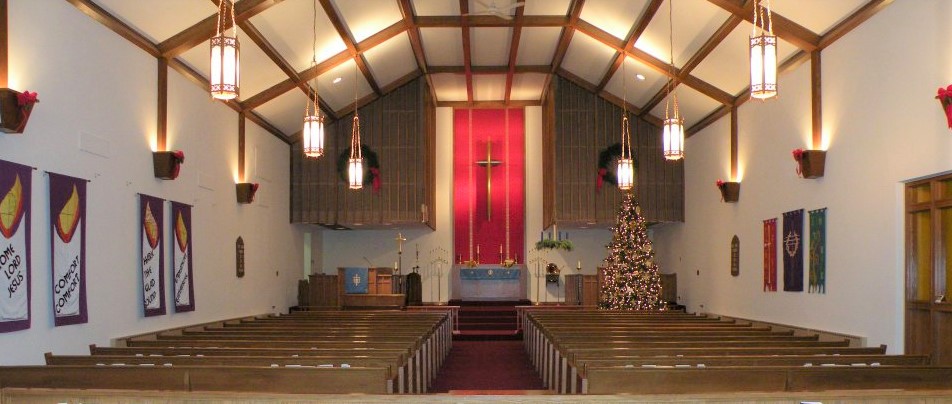12 20 20 Sermon
Advent 4B 2020 Luke 1:26-38 [46-55]
An old friend of mine was listening to Christmas music with her daughter. The song
“Mary Did You Know?” came on, and her daughter asked if it was about the gender-reveal
party when Mary found out that Jesus was going to be a boy. Not quite. But to answer the
song’s rhetorical question, as our gospel and psalmody today reveal, Mary did know—she knew
more than we sometimes give her credit for knowing about what the birth of Jesus meant for the
world.
The first part of Luke’s gospel that we read today is the Annunciation—Gabriel breaking
the news to Mary that she is going to be the mother of God. Mary is perplexed at Gabriel’s
greeting; she is either surprised to see an angel or she is surprised that she has been chosen as
the favored one. Luke doesn’t tell us that she is afraid, but Gabriel instructs her not to be afraid
anyway, partly because angels usually terrify people, but also because Gabriel knows what is
coming next. The favor that is being bestowed on Mary requires extreme bravery on her part.
She places great trust in Gabriel’s promises, considering what a risk it was for her to become
pregnant before marriage, and not even by the man to whom she was engaged—a risk second
only to the danger of childbirth itself. Mary had to believe that the consequences would be
different for her than for anyone else in her position, that her family and friends and especially
Joseph would act with more grace than she could possibly expect. But once she gets past the
logistics, she seems surprisingly calm and even willing for her world to change forever.
Gabriel gives Mary some additional assurance of God’s ability to do otherwise
impossible things: her cousin Elizabeth in her old age is six months pregnant. The second part
of Luke’s gospel that we read today comes from Mary’s visit to Elizabeth. I have never been
sure if Mary went to see her cousin because she was excited by Gabriel’s good news or because
she wanted to see for herself if the things that Gabriel had told her were true. But whatever
Mary’s motivation may have been, Elizabeth credits Mary with believing that what she has been
told will be fulfilled. Mary’s song, the Magnificat, is her response to Elizabeth, her version of
the song that Hannah sang when she dedicated her son Samuel to the Lord. And this is why,
when our modern song asks, “Mary did you know?” we know the answer is yes, yes Mary did
know.

